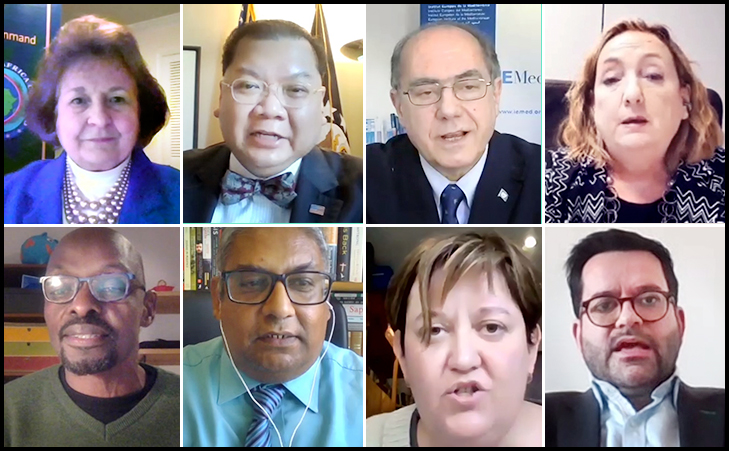NESA (SSN)-AFRICOM-IEMed Sahel Workshop
February 9, 2022 2022-02-09 20:59NESA (SSN)-AFRICOM-IEMed Sahel Workshop
On 08 February 2022 – as part of the continuing series of Strategic Studies Network (SSN) sub-regional working groups, NESA Center Professor Anne Moisan and Fahad Malaikah, in partnership with USAFRICOM and the European Institute of the Mediterranean (IEMed), conducted Part I/II of a program entitled “The Sahel – Mediterranean Compendium: Sharing Perspectives on the Current Security Situation and Future Obstacles in the Region Workshop.” Part I/II was a virtual program with 48 participants from 15 countries; Part II/II will be conducted in person in Casablanca, Morocco, from 14 to 15 June 2022.

“Complex and impenetrable” is how foreigners, sometimes even locals, describe the Sahel. As the Sahara’s southern “shore”, the general public often struggles to understand that what occurs in such a remote area can affect its nearest neighbors, Europe, and the whole international community. Yet, since at least the beginning of this century, several international actors have established their presence in the region, merging individual interests with regional needs for security and stability. For years now, international interventions and regional and transnational cooperation have made considerable efforts in terms of resources and human lives to meet these needs. However, the political, security, and humanitarian situation continues to deteriorate. Militants and jihadists continue their attacks on local governments, populations, as well as on international and French forces. While, locally, militancy and violent extremism are still successful in recruiting from rural populations, the apparent lack of concrete results negatively affects international and local public support. Some may argue that the Sahel is or is becoming another “Endless No-Win War” in a-far-away place, where despite tremendous human and financial resources, the outcomes are still dire. In that sense, international actors such as the French military are looking for ways to reconfigure their presence to try to escape the current stalemate, and others to fill the voids.
Within this context, the virtual event provided an opportunity to critically analyze the ongoing intervention and cooperation strategies and how best to promote more constructive and creative future and local solutions for regional security. Areas covered included “Global Trends and Regional Dynamics Affecting the Sahel and North Africa” and “Understanding the Link between Violent Extremism’s “Social” Strategy and the States in the Region.” Speakers included: Amb. J. Peter Pham, Former U.S. Special Envoy for the Sahel Region of Africa; Amb. Emanuela Claudia Del Re, EU Special Representative for the Sahel (by video message); Dr. Abdoulaye Sounaye, Head of Research Unit “Contested Religion” Leibniz-Zentrum Moderner Orient (ZMO); and Dr. Hussein Solomon, Senior Professor in the Department of Political Science, University of Free State. The workshop was moderated by Amb. Senen Florensa, Executive President, IEMed and Lurdes Vidal, Director of the Arab and Islamic World Department, IEMed. Closing remarks were given by Prof. Anne Moisan, Associate Professor, NESA Center, and Roger Albinyana, Managing Director, IEMed.







